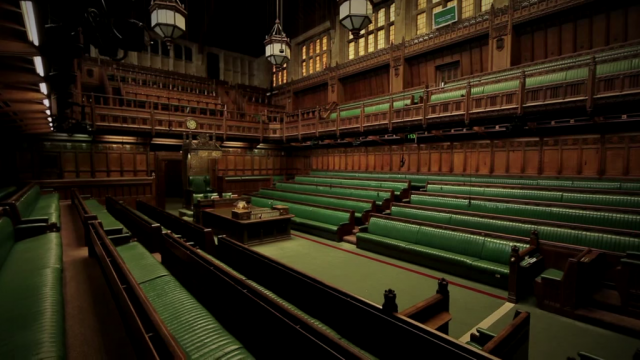
The European Union (Withdrawal) Bill returns to the House of Commons this week. MPs will consider the Bill in a Committee of the whole House. The Bill repeals the European Communities Act 1972 and is of particular importance to the devolved administrations given its provisions relating to:
- the treatment of devolution;
- the delegation of powers and their control; and
- the scrutiny processes and the role of the devolved legislatures.
The Explanatory Note accompanying the Bill acknowledges that, in line with the Sewel Convention, legislative consent will be sought from the devolved legislatures. With the absence of an Executive and a fully functioning Assembly in Northern Ireland, this post examines what is taking place in Scotland and Wales in terms of scrutinising the bill from a devolved point of view.
The Scottish and Welsh First Ministers have expressed their discontent with the Bill as introduced and in a joint statement said:
The Bill does not return powers from the EU to the devolved administrations, as promised. It returns them solely to the UK Government and Parliament, and imposes new restrictions on the Scottish Parliament and National Assembly for Wales.
On that basis, the Scottish and Welsh Governments cannot recommend that legislative consent is given to the Bill as it currently stands.
Both governments have stated, though, that they are hopeful that supplementary memorandums can be laid at futures dates if the Bill can be amended to address their concerns. In this context, the two devolved governments jointly published a set of amendments to the Bill.
Furthermore, Secretary of State for Scotland, David Mundell, told the Scottish Parliament’s Finance and Constitution Committee there was a way through the stalemate and that he was confident of getting consent.
The Bill continues to be subject to scrutiny in the National Assembly for Wales and the Scottish Parliament.
The Chair of the External Affairs and Additional Legislation (EAAL) Committee in the National Assembly for Wales has written to all Welsh MPs setting out the following six objectives for changing the Bill:
- Remove the clause 11 restriction on the devolution settlement.
- Ensure the Welsh Ministers and the Assembly are responsible for correcting all aspects of EU-derived law in areas of devolved legislative competence.
- Ensure powers available to Welsh Ministers under the Bill are strictly limited and more tightly drawn than those currently set-out in the Bill.
- Prevent UK Ministers from amending aspects of EU-derived law that affect Wales unless reserved.
- Prevent UK or Welsh Ministers amending the Government of Wales Act using delegated powers.
- Ensure that the Assembly can set its own scrutiny arrangements.
Alongside these, the EAAL Committee has prepared suggested amendments to achieve its six objectives and these too have been tabled in the House of Commons. These together with the joint government amendments are amongst the 350 plus amendments already tabled at Westminster.
Also in the National Assembly for Wales, the Constitutional and Legislative Affairs Committee is undertaking an inquiry to examine The Powers in the EU (Withdrawal) Bill to make subordinate legislation.
And in the Scottish Parliament, the Delegated Powers and Law Reform Committee is similarly undertaking an inquiry into the delegated powers in the Bill that are to be conferred on Scottish Ministers.
Westminster
At Westminster too a number of committees are currently undertaking or have already undertaken inquiries into the Bill.
- Welsh Affairs Committee Brexit: Agriculture, Trade and the repatriation of powers inquiry
- Public Administration and Constitutional Affairs Committee: Devolution and Exiting the EU inquiry
- Scottish Affairs Committee: European Union (Withdrawal) Bill: Implications for devolution inquiry
- Procedures Committee: Exiting the European Union: scrutiny of delegated legislation inquiry
- Exiting the EU Committee: The European Union (Withdrawal) Bill inquiry
- House of Lords Constitution Committee: European Union (Withdrawal) Bill inquiry
- Delegated Powers and Regulatory Reform Committee: European Union (Withdrawal) Bill report
- House of Lords Select Committee on the Constitution: European Union (Withdrawal) Bill interim report
- European Union Committee: Brexit: devolution report

